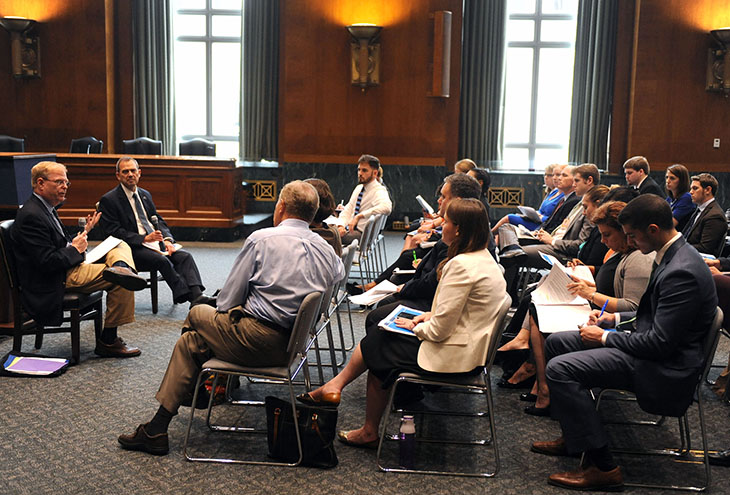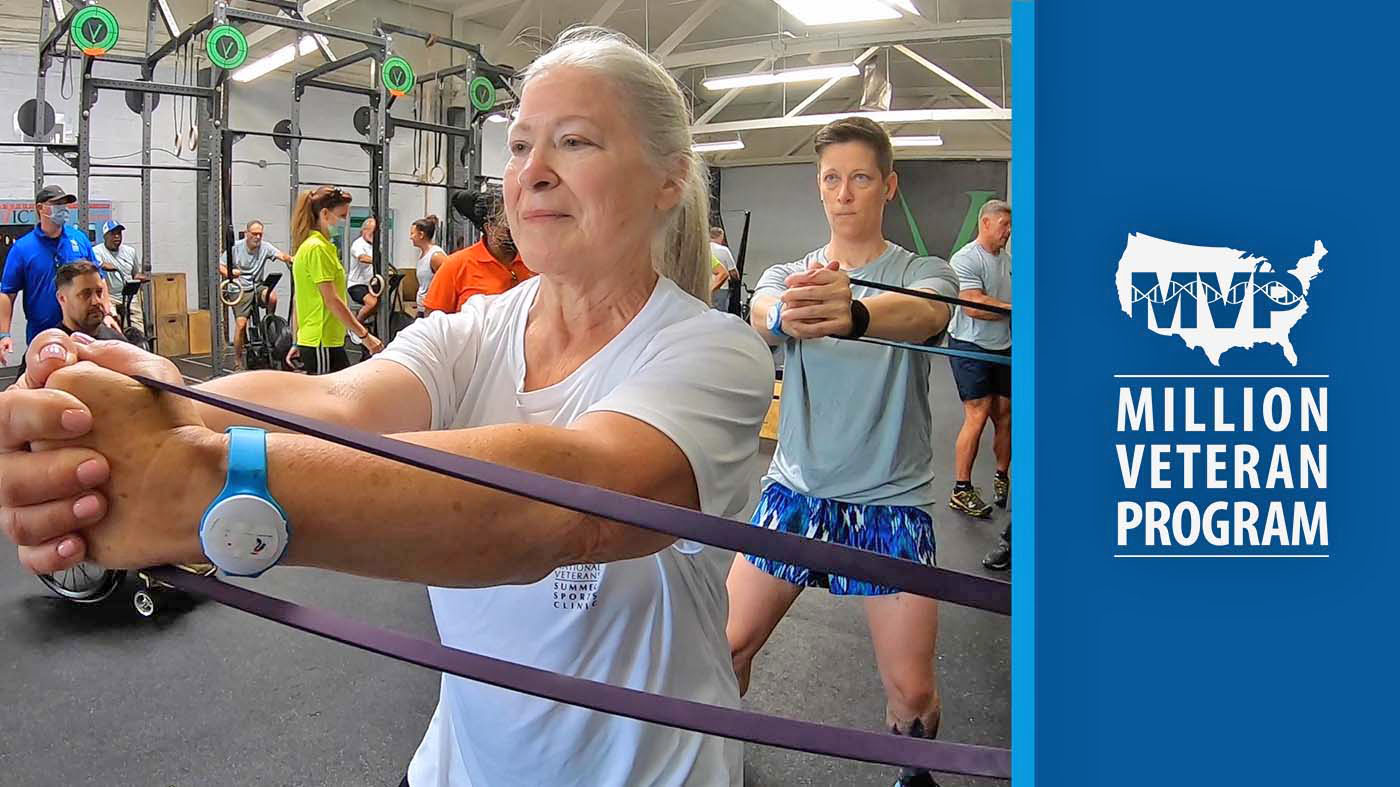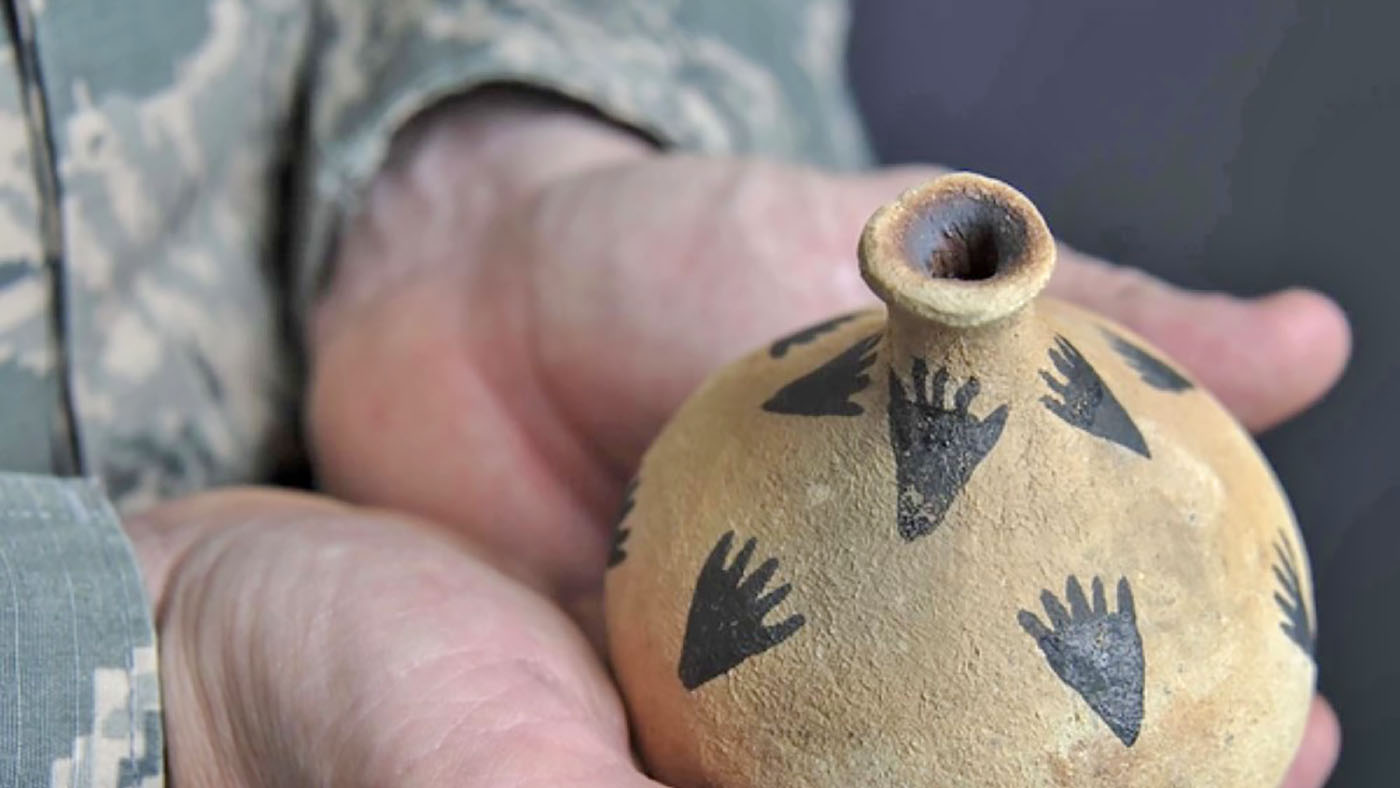As September’s Suicide Prevention Month came to an end, two of VA’s leading authorities on the topic, chief consultant for Mental Health Services Dr. Harold Kudler and Dr. David Carroll, executive director of Mental Health Operations, held a lunchtime meeting at the Senate’s Dirksen Office Building on Capitol Hill to discuss VA’s efforts to combat Veteran suicides.
“VA health care providers coordinate with each other to provide safe and effective treatment for the whole person — head to toe,” said Dr. Kudler.
His colleague, Dr. Carroll, expanded on VA’s holistic approach to care explaining that “having a healthy body, satisfying work, and supportive family and friends, along with getting appropriate nutrition and exercising regularly, are just as important to mental health as to physical health.”
The discussion provided an opportunity for congressional staff and others to learn firsthand about VA’s work, as well as the challenges it faces in preventing Veteran suicides.
One of the topics discussed was VA’s progress in implementing the Clay Hunt Suicide Prevention for American Veterans (SAV) Act, critical legislation that increased access to quality mental health care. Among other things, VA has been able to increase collaboration with non-profit organizations, expand period of eligibility and drafted an interim final rule that will implement the pilot program for the repayment by VA of educational loans for some psychiatrists. Among the challenges VA faces includes funding those loan payments, as well as funding outreach programs and peer support specialists, who play a vital role in helping Veterans inside and outside of the clinical setting.

VA employees Ca-Asia Shields, Elena Kim, Cary Smith, Joanne Boyle and Timothy Ligons on hand to show off one of VA’s most effective tools in delivering benefits and services to Veterans in under-served areas across the country.
Kudler and Carroll also discussed the “The Power of 1,” VA’s suicide prevention outreach initiative – a continuation of last year’s campaign that emphasized that just one person, one conversation, or one small act can make a big difference to a Veteran or Servicemember in crisis by offering hope and connections to confidential support and resources — 1 call can save a life, 1 small act makes a difference and 1 question can open the door to support.
One of VA’s Mobile Vet Centers was also available on Capitol Hill so that staff could tour the vehicle. The Mobile Vet Center is one in a fleet that travel to underserved areas across the country and provide counseling and critical information to Veterans in crisis.
For more information on the Power of 1 campaign, visit http://www.veteranscrisisline.net/ThePowerof1.aspx
Topics in this story
More Stories
MVP’s research informs personalized care for Veterans, supporting whole health and beyond.
More than 4,000 American Indian/Alaska Native Veterans have been approved for the copayment exemption and we're here to help you apply for yours, too.
The screening is an important conversation with your VA health care provider. Here’s the reality behind common misconceptions.








How about giving you the benefits you deserve! Taking care of those who cared to go in! If you need to have Served to be elected you’ll care enough to fix this system!
The VA itself is the major cause of veterans suicide, frustration, lie and illegal acts by VAH menetal health staff. All of which i have on documenets and tapes of VAH officials admitting to crimes. The VA doesn’t care on bit what it does to vets.